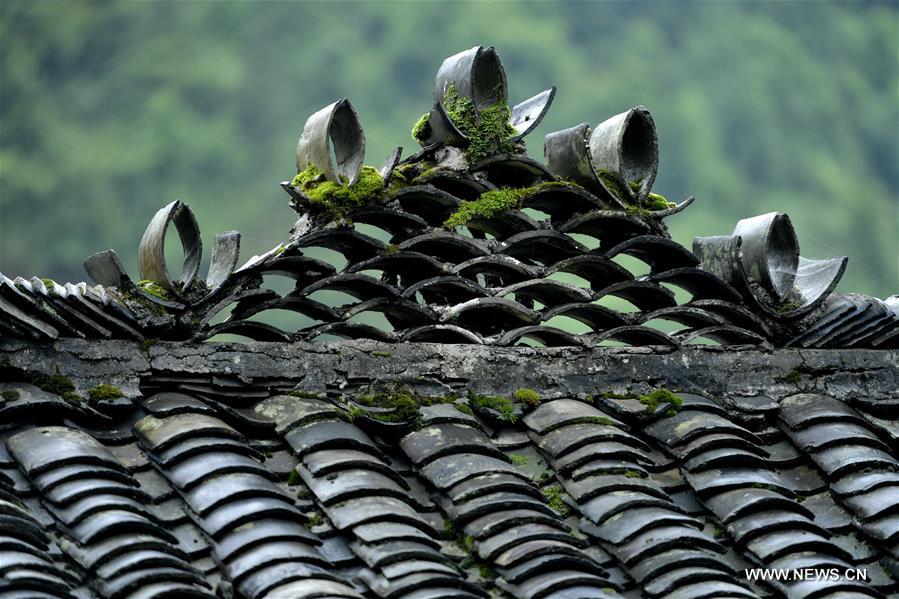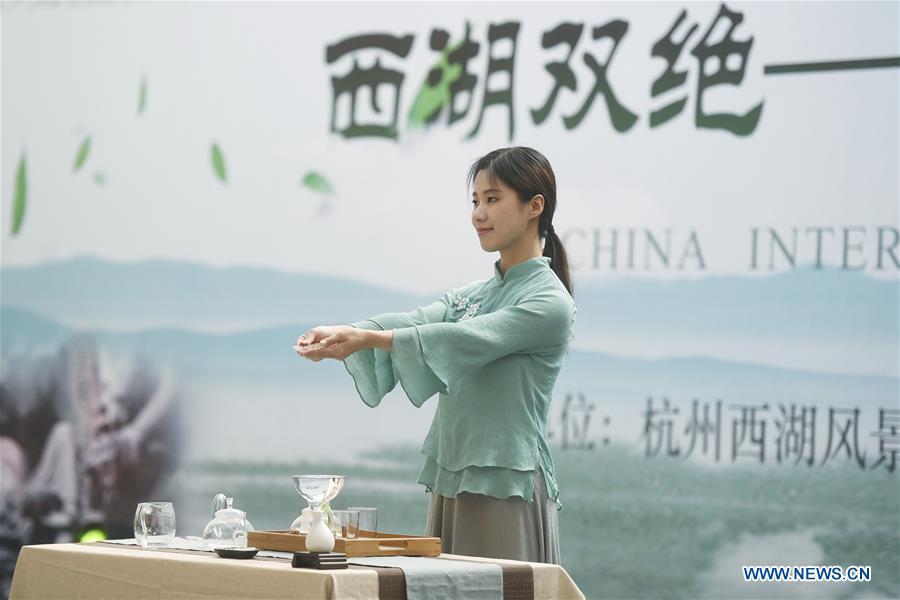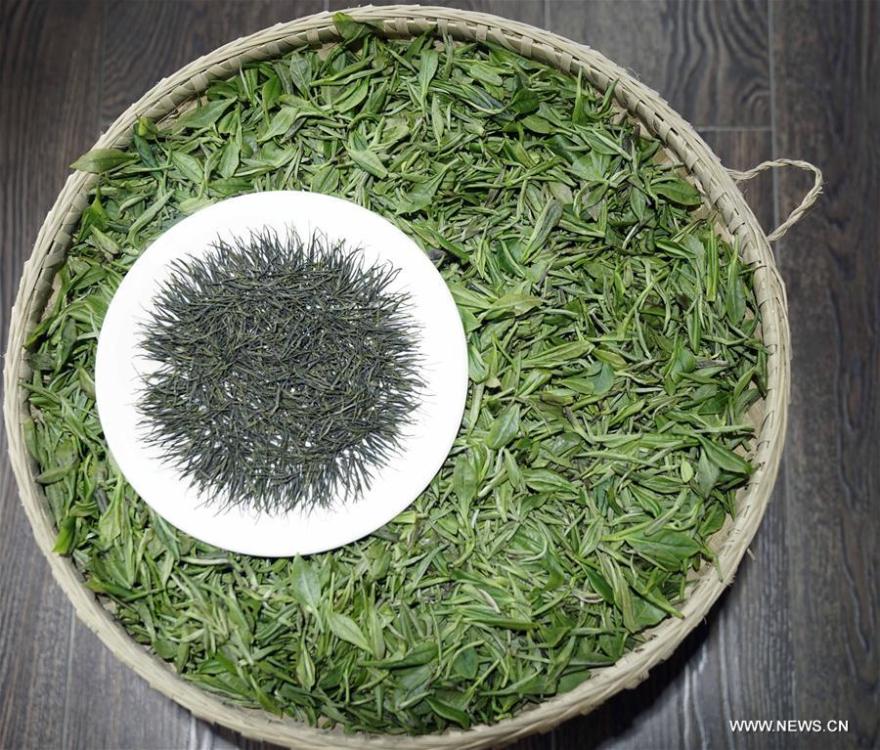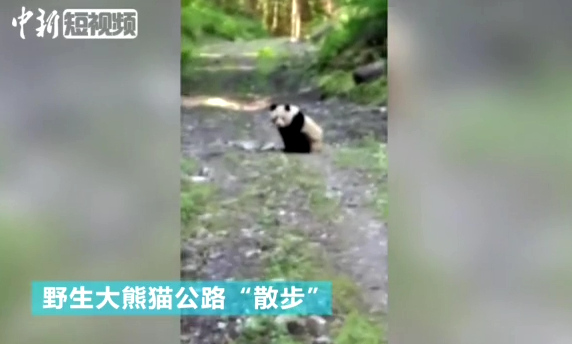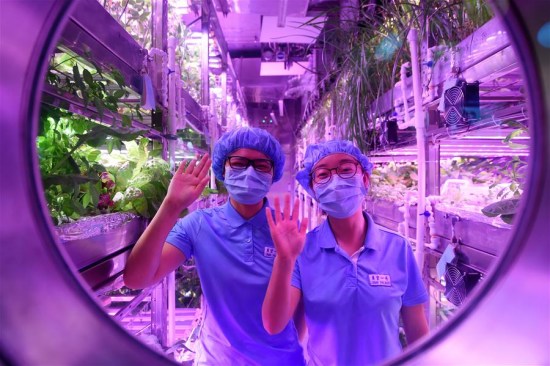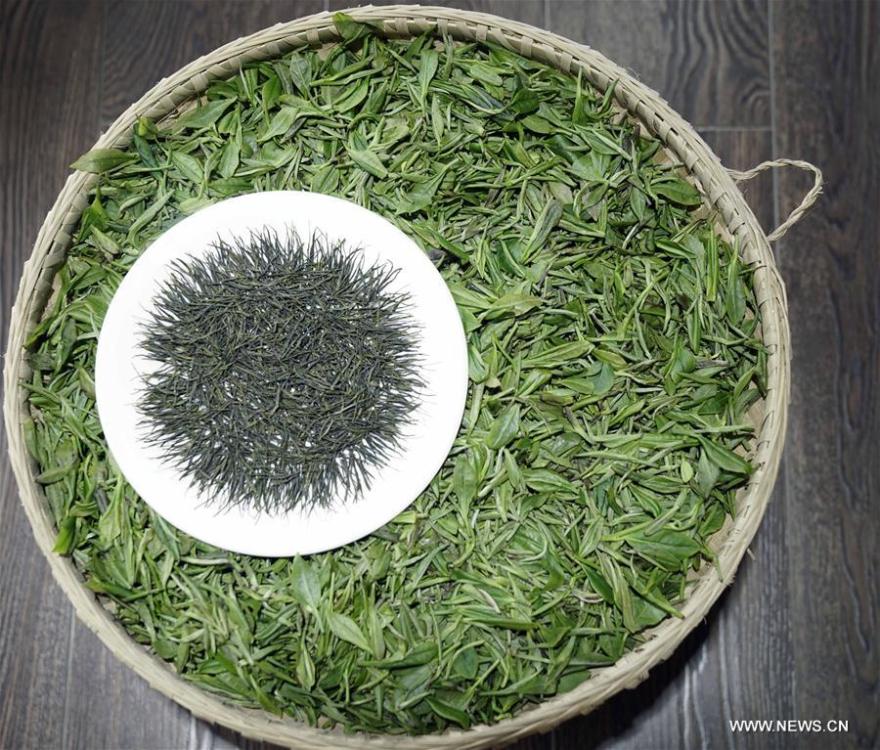
Photo taken on May 18, 2018 shows Enshi Yulu Tea or Jade Dew Tea in Enshi, central China's Hubei Province. The Jade Dew Tea, originating from the Tang Dynasty and popular during the Qing Dynasty, is one of the very few types of steamed green teas in China. The processing skill of the tea has been listed as a national level intangible cultural heritage in 2014. (Xinhua/Wen Lin)
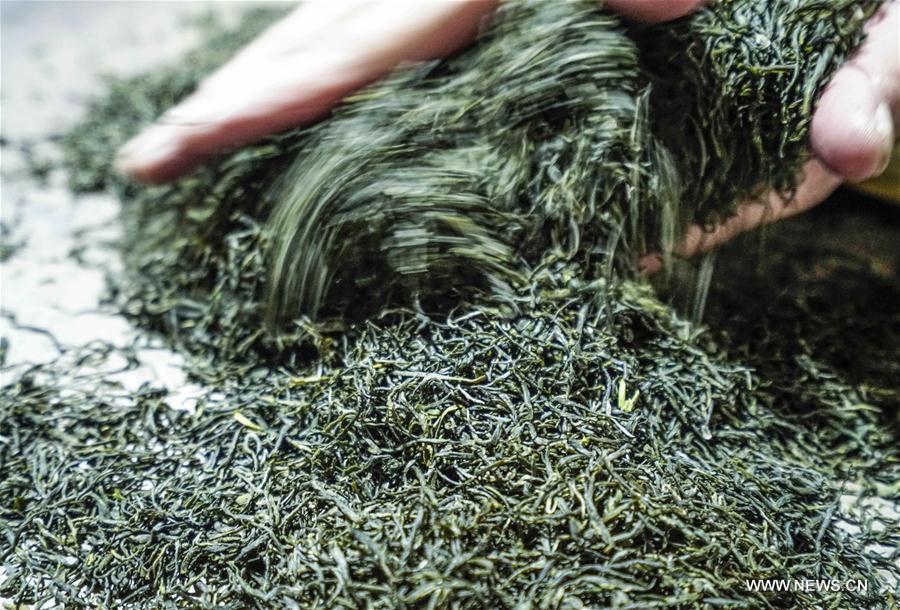
Yang Shengwei, successor of Enshi Yulu Tea or Jade Dew Tea, processes tea leaves in Enshi, central China's Hubei Province, May 18, 2018. The Jade Dew Tea, originating from the Tang Dynasty and popular during the Qing Dynasty, is one of the very few types of steamed green teas in China. The processing skill of the tea has been listed as a national level intangible cultural heritage in 2014. (Xinhua/Wen Lin)
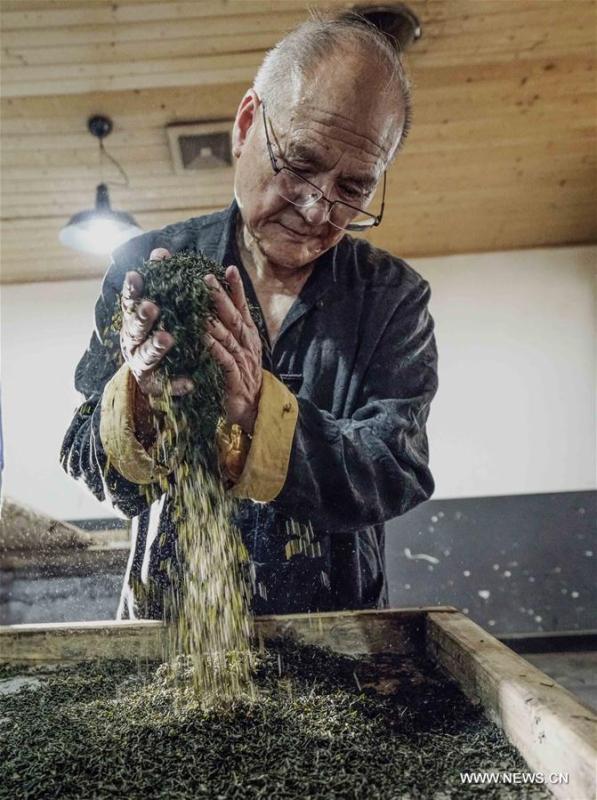
Yang Shengwei, successor of Enshi Yulu Tea or Jade Dew Tea, processes tea leaves in Enshi, central China's Hubei Province, May 18, 2018. The Jade Dew Tea, originating from the Tang Dynasty and popular during the Qing Dynasty, is one of the very few types of steamed green teas in China. The processing skill of the tea has been listed as a national level intangible cultural heritage in 2014. (Xinhua/Wen Lin)
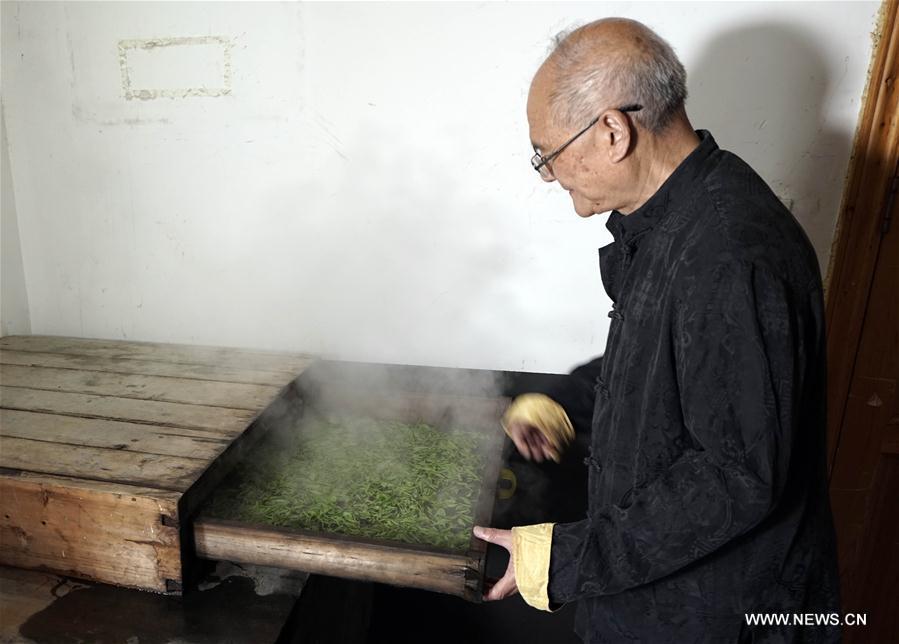
Yang Shengwei, successor of Enshi Yulu Tea or Jade Dew Tea, processes tea leaves in Enshi, central China's Hubei Province, May 18, 2018. The Jade Dew Tea, originating from the Tang Dynasty and popular during the Qing Dynasty, is one of the very few types of steamed green teas in China. The processing skill of the tea has been listed as a national level intangible cultural heritage in 2014. (Xinhua/Wen Lin)
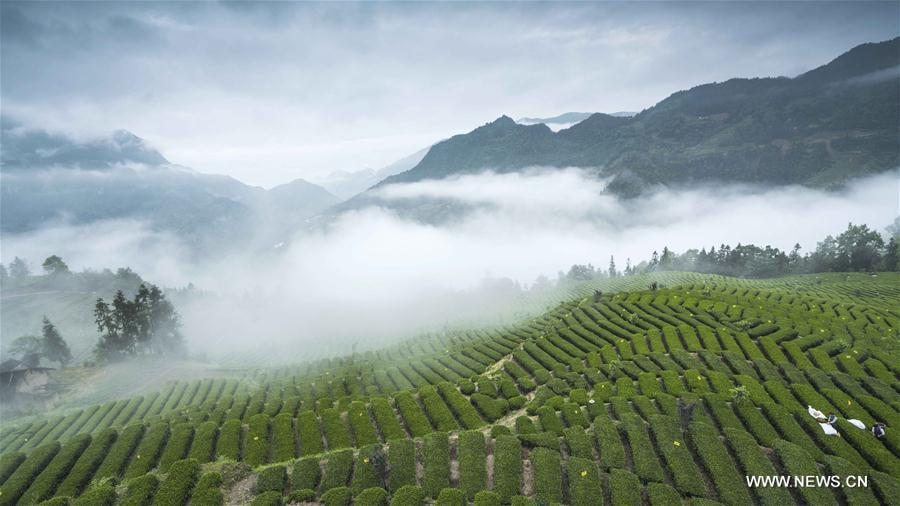
Photo taken on May 18, 2018 shows a base of Enshi Yulu Tea or Jade Dew Tea in Huazhishan Village of Enshi, central China's Hubei Province. The Jade Dew Tea, originating from the Tang Dynasty and popular during the Qing Dynasty, is one of the very few types of steamed green teas in China. The processing skill of the tea has been listed as a national level intangible cultural heritage in 2014. (Xinhua/Wen Lin)







